Drug & Alcohol Rehab in Rugby
Addiction to drugs and alcohol destroys lives, and lots of people in Rugby need to attend drug and alcohol rehab in Rugby.
Whether individuals are severely or mildly addicted to a substance, they will change the course of that person’s life, health and future.
This is why it is incredibly important that addiction is prevented.
In fact, for every £1 invested into preventing addiction, it saves the NHS £2.50 in care and treatment costs.
Alcohol Statistics In Rugby

When it comes to addiction statistics and drug and alcohol rehab in Rugby and the rest of Warwickshire, it was suggested that Warwick has the highest number of alcohol abusers in the county, with approximately 29,555 people abusing alcohol on a frequent basis.
After this, Stratford upon Avon had the second-highest levels of reported alcohol abuse.
Young people across Warwickshire and the rest of the UK are abusing alcohol now more than ever.
Approximately 38% of all 11 – 15-year-olds admit to drinking alcohol, and a study carried out in 2014 found that more young people aged 11 – 15 are drinking alcohol on a regular basis, with most admitting to drinking in the past month.
Addiction And Death

Deaths due to drug and alcohol abuse in Rugby and Warwickshire are very common.
In fact, the most common cause of death due to alcohol abuse in Warwickshire and Rugby is liver disease.
There were approximately 12,255 deaths due to liver disease in the UK between 2013 – 2015, with just 34.2% of these deaths’ female.
In Warwickshire specifically, the rates of deaths due to liver disease caused by alcohol abuse is lower than the national average, but only by a bit.
Locally, liver disease accounts for over 60% of all deaths due to alcohol abuse.
When it comes to alcohol related hospital visits, Warwickshire has lower than national average rates – however, this rate is slowly on the rise in Rugby specifically.
In fact, Rugby has one of the highest rates of hospital admissions due to alcohol abuse in the whole of Warwickshire, with Coventry following closely behind.
Regarding alcohol-related crime and assaults, 66% of all assault victims who attended A&E within one year were down to alcohol abuse, with the victim having been drinking when the attack happened.
What Is Alcohol Addiction?

Lots of people use terms such as ‘alcoholic’ and ‘alcoholism.’
However, those who work within treatment facilities will refer to an alcohol addiction as alcohol dependence or an alcohol use disorder.
An alcohol addiction is when someone consumes high levels of alcohol on a frequent basis and generally cannot stop.
This creates many symptoms, with some affecting individuals temporarily and some which can cause life changing effects.
Some of these symptoms include:
- An increase in tolerance making it harder to feel intoxicated.
- Craving alcohol more frequently.
- Experiencing withdrawal symptoms when you stop consuming alcohol for a period of time.
- Avoiding withdrawing from alcohol in fear of experiencing withdrawal symptoms.
- Constantly thinking about alcohol.
- Relapsing more than once.
- Changing friendship groups for those who will enable binge drinking.
- Frequently being late for work or other commitments.
- Inability to control your actions.
If you struggle with several the above signs and symptoms, then you might be struggling from an addiction to alcohol.
If this is the case, then you might need to attend an alcohol rehab in Rugby to recover.
What Is Rehab?

Rehab is simply short for rehabilitation.
A rehab centre is a place where people who suffer from substance addiction or a mental health issue go to receive treatment, learn more about their addiction and issues and learn how to overcome it.
Within a rehab centre in Rugby, you will first be assessed upon your admission.
Doctors and specialists will ask you all sorts of questions to figure out what form of help and treatment you will need in order to successfully recover.
After you are assessed, you will either be recommended for inpatient or outpatient treatment.
Detox And Therapy
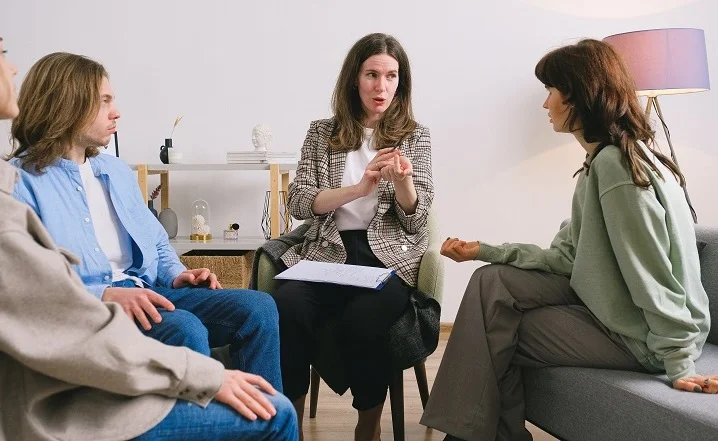
From here, you will undergo a physical detox if needed.
Once this physical detox is complete, you will then be moved on to receive therapy to focus on your psychological addiction.
During drug and alcohol rehab in Rugby, you will also be given the chance to focus on how you can prevent a relapse again in the future, making you as strong as possible before you leave the rehab centre and go back home to your daily life.
A rehab is a holistic way to recover, as it focuses on your mental and physical health, as well as your wellbeing and self-care.
Your time will also be spent focusing on how you can become more independent and confident in the outside world to ensure that you do not relapse and live a happy and healthy life afterwards.
Intervention In Rugby

If your loved one is suffering from a drug addiction, then it can sometimes be difficult to know how to help.
If this is you, then you should consider holding an intervention for your loved one,
An intervention sounds like a simple thing, but can actually be very complex.
For example, individuals must carefully consider where to hold the intervention, who to invite, when to hold the intervention and how they should approach their communication style with their loved one.
It is important that when holding an intervention, you put great thoughts into these types of things.
Without doing so, your loved one could feel intimidated, attacked and provoked.
An addiction is a very personal thing to discuss, so you need to make sure that you approach them in an open and considered way.
It is also imperative that you plan what you want to stay beforehand, and even discuss this with whoever else will be at the intervention to make sure that you are on the same page.
You should also invite people they know really well, who are aware of their addiction and won’t be judgemental.
Offering Treatment And Getting Support

You also need to make sure that you lay out your loved one’s treatment options during the intervention, making it clear that there are options available to them to recover and change their life for the better.
If you think you might need a bit of support during your intervention, then you should ask an intervention specialist to help you choose an intervention style, to ensure that it goes as well as it possibly can.
You could always look into CRAFT, which stands for Community Reinforcement and Family Training which helps people become better communicators.
How Much Does Rehab Cost In Rugby?

Most people are well aware that rehab is expensive.
Unfortunately, this fact is very true.
Due to this, a lot of people who genuinely need help and support from a rehab centre often avoid asking about rehab as they presume that they will not be able to afford it.
Whilst the NHS does fund some rehab treatment, they do not qualify everyone for NHS funded rehab.
Unfortunately, this means that lots of people end up having to fund their own rehab.
Rehab costs approximately £500 a day, but this does differ a lot on a number of different factors.
This includes how ‘fancy’ the rehab centre is, how long individuals stay there for, what kind of treatment they require and what substance they are addicted to.
Most people are required to stay in drug and alcohol rehab in Rugby approximately twenty-eight days, which means that the average stay in rehab can cost up to £14,000.
However, this does differ a lot based on the above factors.
How Long Does Rehab Last?

As discussed above, how much an individual pays for rehab treatment depends on how long they stay in rehab for.
This also differs a lot, with most people staying approximately 28 days in inpatient rehab.
However, if you suffer from a mild addiction and do not experience any complications such as a dual diagnosis, then you will only be required to stay in inpatient rehab for 10 – 28 days.
If your addiction is more severe, you will need to stay in drug rehab for a bit longer.
For example, if you suffer from an addiction such as heroin, and also suffer from a complication such as a dual diagnosis, then you will likely stay in rehab for anywhere between 60 and 90 days.
Is Drug And Alcohol Rehab In Rugby Covered By The NHS?
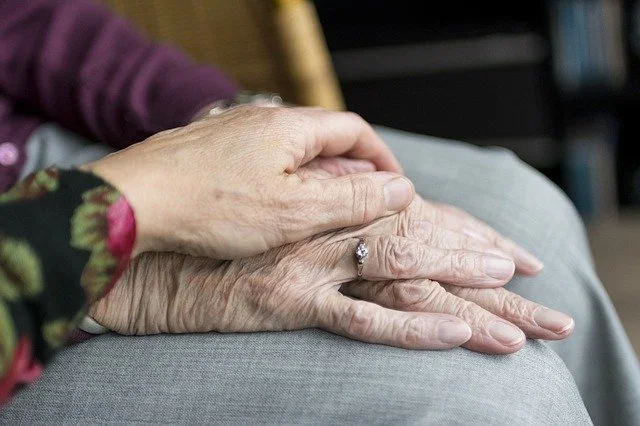
Most people do not know that the NHS are able to help some people when it comes to rehab treatment.
Whilst the NHS is a fantastic nationwide health provider, when it comes to funding rehab there simply isn’t the funding to allow everyone access to NHS-funded rehab treatment in Rugby and the rest of the UK.
If you’re unsure as to whether or not you will qualify for NHS funded rehab, then speak to your local drug and alcohol team in Rugby or speak to your GP.
Alternatively, speak to a member of the Rehab Recovery team stand we can help you figure out your odds of qualifying for NHS-funded drug and alcohol rehab in Rugby.
NHS VS Private Addiction Treatment

Whilst there are many pros to attending NHS-funded rehab, some people do argue that the waiting lists are simply too long to endure.
Due to a lack of funding, there are not many NHS-funded spaces available, which means that waiting lists have some people waiting up to months for their treatment.
The main benefit to attending NHS-funded drug and alcohol rehab in Rugby is that it is free.
This means that you will not need to pay for your treatment, making it a lot more accessible and open to more people.
Private rehab treatment is great as most people end up getting their treatment within weeks or sometimes days of first enquiring.
You will also receive the very best treatment in your area, from the best doctors around.
However, as discussed above, attending private drug rehab treatment in Rugby and the rest of the UK is very expensive.
This means that a lot of people are excluded from attending treatment as they simply just can’t afford it.
Inpatient Or Outpatient Treatment In Rugby
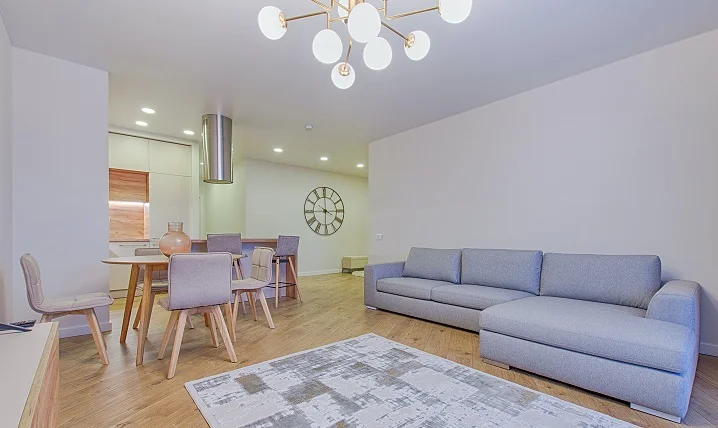
Lots of people feel anxious about having to decide between inpatient alcohol and drug rehab treatment and outpatient treatment.
However, the reality is that you will often have the decision made for you.
When you first enquire about drug and alcohol rehab in Rugby, you will be assessed and doctors and specialists will advise on what form of treatment you would best benefit from.
If you suffer from a mild addiction and need addiction treatment, then you might be better suited to outpatient rehab treatment.
This means that you will be able to maintain your day-to-day life, whilst also benefiting from receiving treatment at the same time by visiting rehab centres for a few hours at a time.
Inpatient rehab treatment is a lot different.
Inpatient alcohol and drug rehab treatment allow people to move into the rehab centre for a number of weeks or months in order to receive their treatment.
They eat and sleep there, whilst receiving all their treatment within the facility, too.
Alcohol Detox & Alcohol Rehab In Rugby

Alcohol addiction is very common, both in Rugby and throughout the rest of the UK.
Lots of people are aware that an addiction to alcohol involves a physical addiction.
They’re also aware that a physical addiction means that in order to recover, you will have to undergo a physical detox.
Physical detox is where people completely withdraw from consuming the addictive substance so that the body stops craving it, chemically and biologically.
Some rehab centres will do this with you slowly so that you do not overwhelm and shock the body by stopping immediately and all at once.
Withdrawing from alcohol means that you will experience withdrawal symptoms.
Some of these symptoms can be extremely unpleasant, and a lot of people are tempted to quit and continue abusing the addictive substance.
Although this can be the hardest part of alcohol recovery, it can also be the most rewarding.
After this part of the process has been completed, you will then spend the upcoming weeks receiving therapy and working with psychologists and specialists to help overcome the psychological side of your addiction.
Rehab For Cocaine In Rugby
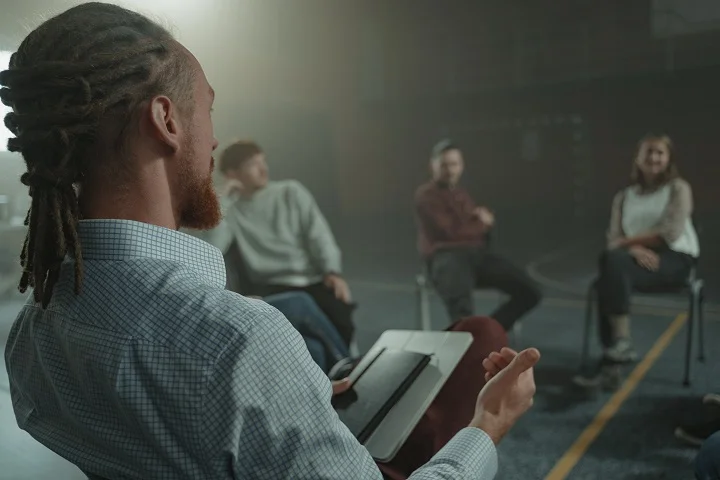
Although most people know that cocaine is highly addictive, not everyone is aware that cocaine is not physically addictive.
This means that whilst people need to work really hard at overcoming the mental side of their addiction to cocaine, they do not need to experience the unpleasant withdrawal symptoms that come with detoxing.
Rehab For Heroin In Rugby

Diversely to cocaine, heroin is both physically and mentally addictive.
Unfortunately, this then means that if you are addicted to heroin, you will need to experience both physical and mental treatment.
You will arrive at rehab and receive a detox very quickly, ridding your body of the substance and any toxins.
Next, you will move on to various treatments designed to rehabilitate you and prevent future relapse.
Rehab for Cannabis in Rugby

Lastly, if you are addicted to cannabis then your rehab will consist of therapy to help you overcome your addiction.
Luckily for anyone with an addiction to cannabis, cannabis is not physically addictive.
This means that you will not have to endure withdrawal symptoms, and your time will be spent focussing on how to strengthen your mind, overcome triggers and avoid cravings.
Types of Therapies on Offer in Rugby Rehab Centres
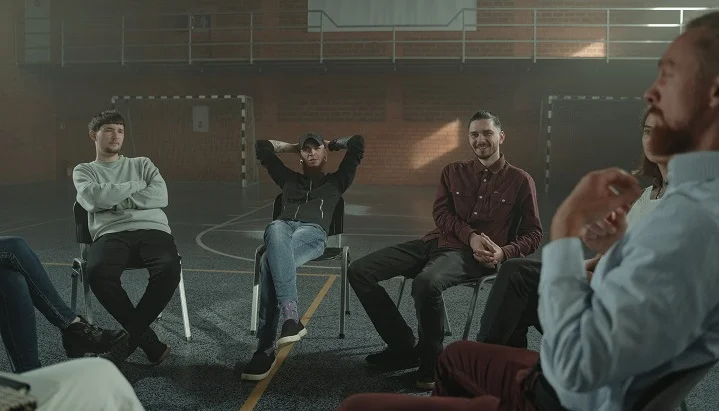
One-to-One Therapy
Whilst there are many different types of therapy techniques in today’s day and age, one-to-one therapy with a trained psychologist has been tried and tested and is an invaluable form of therapy.
Holistic Therapy Techniques
Holistic therapy is a way of experimenting with new activities and techniques, trying all sorts of activities from art and music therapy to yoga, acupuncture and more.
Twelve-Step Facilitation Therapy (TSF)
TSF is a form of therapy that motivates individuals still at rehab to continue their therapy outside of rehab, in the form of self-help groups such as Alcoholics Anonymous.
CBT
Cognitive Behavioural Therapy is based on the idea that your thoughts, sensations, and behaviours are all intertwined, and that once you have one bad thought or habit that this can easily spiral.
CBT helps you to overcome these thoughts, feelings and sensations one by one to develop a better way of living.
Brief Interventions
A brief intervention is another form of therapy that helps people to break the vicious cycles of their bad habits and behaviours.
Co-Dependency Treatment
Co-Dependency Treatment is aimed at helping those who feel co-dependent on another person.
It aims to motivate them to feel more confident in their own abilities and to pay attention to their own needs.
Motivational Therapies
If you struggle to find the motivation within yourself to change, then you will be offered Motivational Interviewing and Motivational Enhancement Therapy to help you identify those internal motivations and triggers to want to change.
Family Therapy
Family therapy allows families the space and opportunity to talk in a mutual and safe environment where they can discuss their thoughts, worries, feelings and emotions whilst being guided to becoming better communicators.
Group Therapy
Lots of people find that one-to-one therapy just isn’t for them, and try group therapy instead.
During group therapy, you will be able to ask questions to other sufferers, whilst hearing their stories and watching their progression.
The Importance Of Dual Diagnosis

Unfortunately, suffering from a mental health issue alongside an addiction makes it harder for people to function, deal with their symptoms and recognise that they need help.
Some of the most common mental health issues found alongside addiction include:
When someone suffers from these mental health issues, day-to-day life becomes increasingly difficult.
When you add an addiction into the mix, it can simply become impossible to function.
This is why people who have an addiction alongside a mental health issue, which is commonly referred to as a dual diagnosis, will be in the best place to get help for both issues separately.
Relapse Prevention

By the time you’ve come to the end of your rehab treatment, you will have worked extremely hard on your recovery.
That is why you will spend the last few days of your rehab journey creating a relapse prevention plan.
This will help to ensure that you stay sober after you leave rehab, providing you with tips, tricks and advice on how to stay sober during day-to-day life.
Aftercare and Support Services in Rugby

There is a wide range of aftercare and support services available to those who need drug treatment in Rugby.
Some of these include:
- SMART meetings – These are a form of self-help groups that are available in person and online.
- A home detox – Where you receive medication in the post and therapy over the phone.
- Al-Anon Family Group Meetings – Where your family can meet in a controlled environment to become better at communicating.
- Alcoholics Anonymous and Narcotics Anonymous – These are self-help groups that use to famous the 12 steps to recovery.
- Outpatient treatment – Ongoing treatment where you visit rehab centres and return home the same day.
Whilst some of these services are new, some have been used for years and are tried and tested ways of maintaining your recovery from an addiction to drugs and alcohol.
Get The Help You Need Today

If you’re living in Rugby and are ready to overcome your addictions, then your next step is to seek help.
When you contact Rehab Recovery, our agents will guide you through the initial stages of research and help you pick the perfect treatment service for your unique needs.
When you make the choice to start recovery, you’re making the choice to pursue a happier and healthier life.



